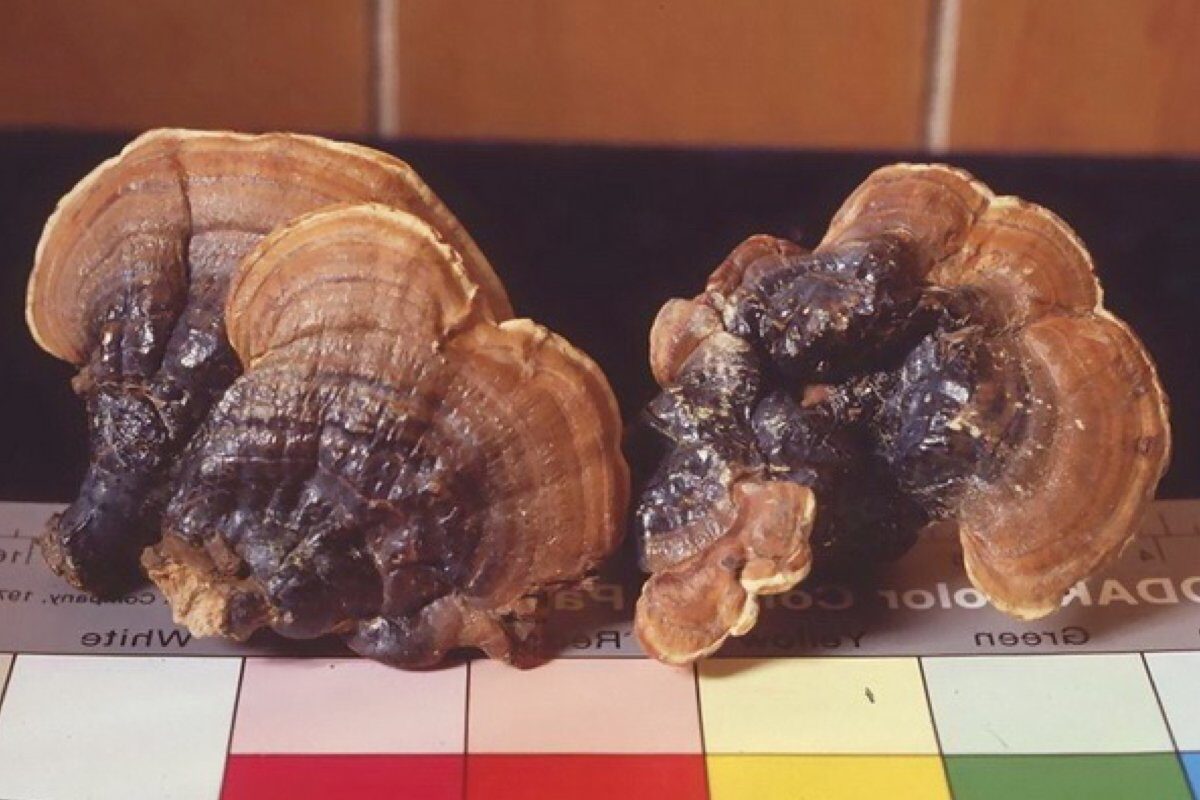Taiwanese Researchers: Medicinal Mushroom Shows Promise in Preventing, Treating COVID-19
Ganoderma is a medicinal mushroom long used in traditional Chinese medicine (TCM). Species of ganoderma, commonly called lin-zhi (靈芝) or reishi, have been used for thousands of years to treat a variety of illnesses. Now, researchers have shown that ganoderma microsporum, a species of ganoderma native to Taiwan, may prevent and alleviate COVID-19 infection.Taiwan researchers found that ganoderma microsporum immunomodulatory protein (GMI), a protein isolated from the mushroom, shows a preventative mechanism against SARS-CoV-2 (COVID-19) and can effectively block the infection by affecting host cells. GMI prevents viral infection in two ways: on the one hand, GMI attaches to the spike protein of the COVID-19 virus, and on the other hand, GMI reduces ACE2 expression in host cells. ACE2, or angiotensin-converting enzyme 2, is a protein on the surface of many types of cells. The ACE2 protein in host cells binds to the spike protein of the SARS-CoV-2 virus prior to infection, making it the point of entry through which the COVID-19 virus infects human cells. The study, conducted by a Taiwanese research team from National Yang Ming Chiao Tung University in Taipei, was published in the medical journal Phytomedicine last month. Tung-Yi Lin, an associate professor at the Institute of Traditional Medicine, and Ming-Han Tsai, assistant professor at the Institute of Microbiology and Immunology, led the research team. The study indicated that GMI can not only interfere with virus binding to host cells, but also reduce the severity of viral infection. Nebulized Form of GMI More Effective Lin further hypothesized that since viruses infect host cells through the respiratory system, inhaled GMI would more effectively prevent viral infection. Therefore, the research team experimented with aerosolized drug delivery, allowing mice to inhale the protein through a nebulizer. They found that aerosolized drug delivery was more effective in reducing ACE2 expression in the lungs of mice, confirming that aerosolized drug delivery of GMI could provide an emerging option in the prevention of COVID-19. The team’s discovery won a gold medal at the Moscow International Salon of Inventions and Innovative Technologies ARCHIMEDES competition. Inspiration from Chinese Herbology Lin has been engaged in the research of lin-zhi proteins for many years. His research started with inspiration from the Herbal Foundation Compendium (本草綱目), an ancient Chinese medicine dictionary, which records that Lin-Zhi replenishes the lung qi. In traditional Chinese medicine, qi is a vital energy. Lin’s research led him to believe the Lin-zhi proteins could play a pivotal role in treating COVID-19. As the SARS-coV-2 virus continues to mutate, research in supplementary treatments from traditional Chinese medicine may serve an important role in COVID-19 prevention and treatment. The research team emphasized that although more research is needed, ganoderma could be used as a daily supplement.

Ganoderma is a medicinal mushroom long used in traditional Chinese medicine (TCM). Species of ganoderma, commonly called lin-zhi (靈芝) or reishi, have been used for thousands of years to treat a variety of illnesses. Now, researchers have shown that ganoderma microsporum, a species of ganoderma native to Taiwan, may prevent and alleviate COVID-19 infection.
Taiwan researchers found that ganoderma microsporum immunomodulatory protein (GMI), a protein isolated from the mushroom, shows a preventative mechanism against SARS-CoV-2 (COVID-19) and can effectively block the infection by affecting host cells.
GMI prevents viral infection in two ways: on the one hand, GMI attaches to the spike protein of the COVID-19 virus, and on the other hand, GMI reduces ACE2 expression in host cells.
ACE2, or angiotensin-converting enzyme 2, is a protein on the surface of many types of cells. The ACE2 protein in host cells binds to the spike protein of the SARS-CoV-2 virus prior to infection, making it the point of entry through which the COVID-19 virus infects human cells.
The study, conducted by a Taiwanese research team from National Yang Ming Chiao Tung University in Taipei, was published in the medical journal Phytomedicine last month. Tung-Yi Lin, an associate professor at the Institute of Traditional Medicine, and Ming-Han Tsai, assistant professor at the Institute of Microbiology and Immunology, led the research team.
The study indicated that GMI can not only interfere with virus binding to host cells, but also reduce the severity of viral infection.
Nebulized Form of GMI More Effective
Lin further hypothesized that since viruses infect host cells through the respiratory system, inhaled GMI would more effectively prevent viral infection.
Therefore, the research team experimented with aerosolized drug delivery, allowing mice to inhale the protein through a nebulizer. They found that aerosolized drug delivery was more effective in reducing ACE2 expression in the lungs of mice, confirming that aerosolized drug delivery of GMI could provide an emerging option in the prevention of COVID-19.
The team’s discovery won a gold medal at the Moscow International Salon of Inventions and Innovative Technologies ARCHIMEDES competition.
Inspiration from Chinese Herbology
Lin has been engaged in the research of lin-zhi proteins for many years. His research started with inspiration from the Herbal Foundation Compendium (本草綱目), an ancient Chinese medicine dictionary, which records that Lin-Zhi replenishes the lung qi. In traditional Chinese medicine, qi is a vital energy. Lin’s research led him to believe the Lin-zhi proteins could play a pivotal role in treating COVID-19.
As the SARS-coV-2 virus continues to mutate, research in supplementary treatments from traditional Chinese medicine may serve an important role in COVID-19 prevention and treatment. The research team emphasized that although more research is needed, ganoderma could be used as a daily supplement.












